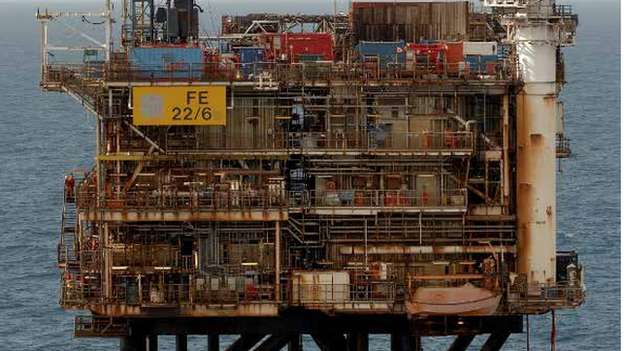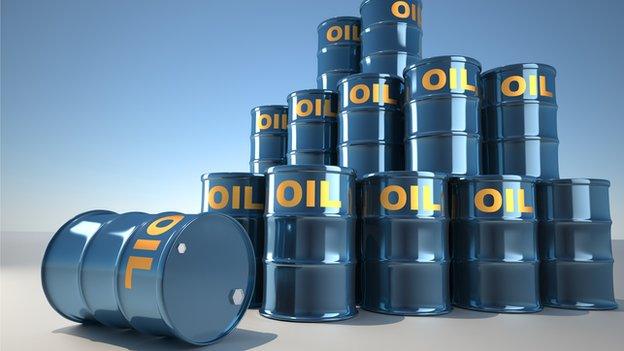Apache to slash spending but prioritise North Sea operations
- Published

Apache, a long-established operator in the North Sea oil industry, is to slash its capital spending this year by more than half.
However, the Texan company said its UK operations will be a priority area, as it cuts back more harshly on North American onshore projects.
After the crash in the oil price, the firm is allocating between $1.4bn and $1.8bn to capital expenditure in 2016.
That is a drop of more than half on last year.
In 2015 it spent $3.6bn. It is also a cut more than 80% on its 2014 budget.
Successful drilling
It is to be split in roughly equal portions between maintenance, development and exploration.
Its North Sea operations are to get 30%, the largest share of any of the company's regional operations. Offshore Egypt is also to be a priority.
The decision runs counter to fears that the North Sea is seen by the industry worldwide as a relatively expensive and unattractive oil and gas basin in which to invest.
Apache's North Sea assets produce at below the average cost for the region, an average of $16 per barrel of oil by the end of 2015. That is more than its Egyptian and North American assets, but so is the UK cash margin, at $33 per barrel last year.
In addition, the company has been unusually successful with recent drilling. Last October, the Houston-based explorer announced several new finds, which will be the focus of the new capital spending.
Two are in the Beryl area, east of Orkney, and one near the Forties field, which lies east of Fraserburgh.
Together, the Callater, Corona and Seagull finds are estimated to have reserves of between 74 and 129 million barrels of oil or its gas equivalent.
The company reported that it drilled 23 development wells in the UK North Sea during 2015, with an overall success rate of 83%. In the final quarter, its North Sea production averaged 72,000 barrels per day.
Across all its operations, Apache suffered a pre-tax loss of $28 billion in 2015. That was mainly explained by a $25 billion drop in the valuation of its oil and gas reserves due to lower prices.
- Published15 January 2015
